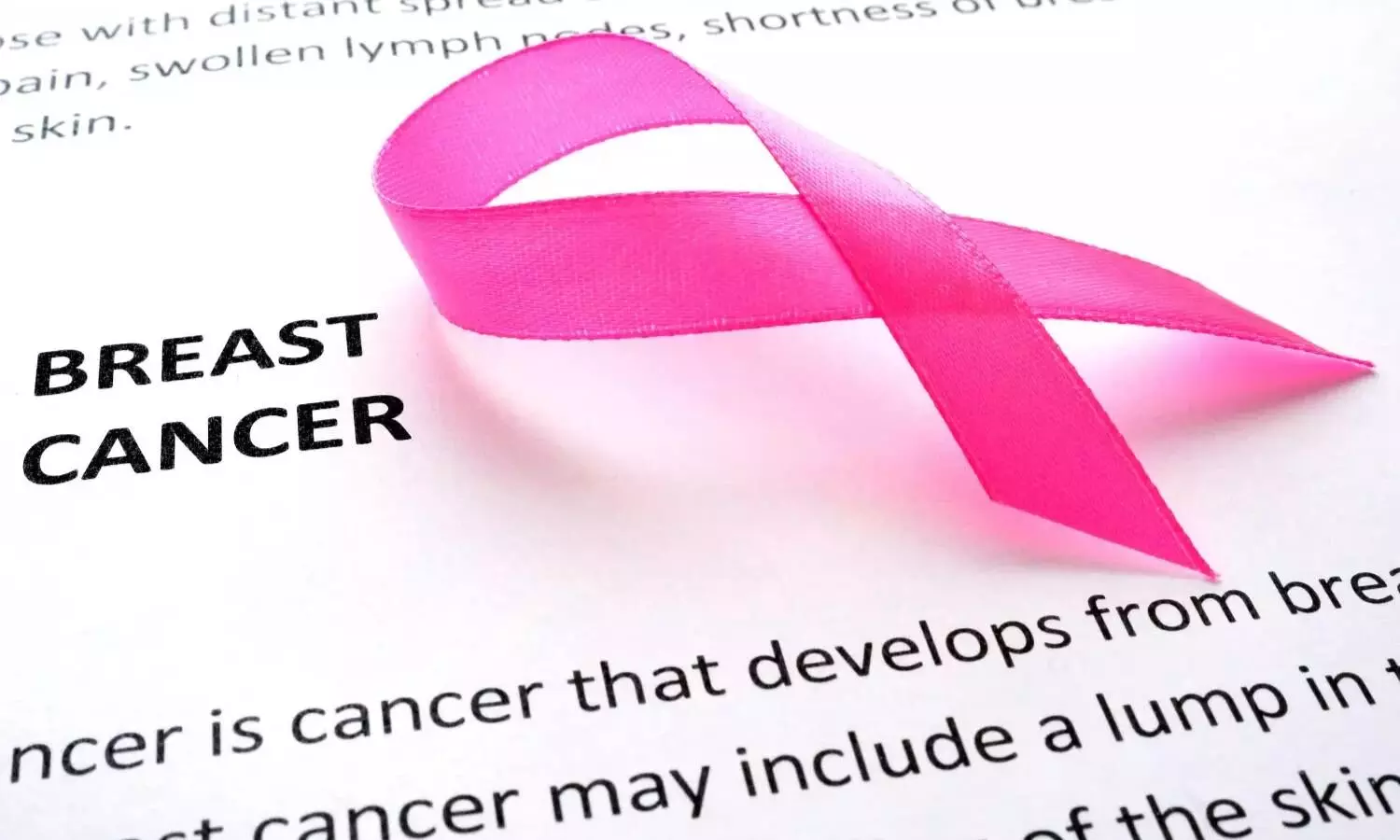Breast milk examination may help in early detection of cancer during pregnancy and postpartum period

Spain: Breast milk (BM) obtained from breast cancer patients carries cell-free tumour DNA (ctDNA), surpassing plasma-based liquid biopsy for molecular profiling and detection of early-stage breast cancer, even before diagnosis by image, researchers have shown for the first time.
The findings, published in Cancer Discovery, open up the potential use of breast milk as a new source for liquid biopsy for the detection of postpartum breast cancer (PPBC).
Breast cancer is the most common malignancy diagnosed and the most common cancer-related death during lactation and pregnancy. Two entities are differentiated according to diagnosis: breast cancer diagnosed during pregnancy (PrBC) and up to 5 to 10 years postpartum. In women <45 years old, both subtypes encompass up to 55% of breast cancers diagnosed. New cases are expected to rise in the years to come, considering that ageing increases the risk of breast cancer and the tendency to delay pregnancy in developed countries.
PrBC and PPBC are usually diagnosed at more advanced stages compared with other breast cancers, worsening their prognosis. PPBC is particularly aggressive, with increased mortality and metastatic risk. Thus, there is a need for effective screening methods for effective screening methods for early detection of PrBC and PPBC.
Cristina Saura, Vall d'Hebron Barcelona Hospital Campus. Barcelona, Spain, and colleagues hypothesized that breast milk could represent a reliable source of ctDNA that may be used as a strictly noninvasive method for early detection of PPBC.
"We report for the first time that ctDNA is present in breast milk collected from breast cancer patients," the researchers wrote.
The study revealed the following findings:
- Analysis of ctDNA from BM detects tumour variants in 87% of the cases by droplet digital PCR, while variants remain undetected in 92% of matched plasma samples.
- Retrospective next-generation sequencing analysis in BM ctDNA recapitulates tumor variants, with an overall clinical sensitivity of 71.4% and specificity of 100%.
- In two cases, ctDNA was detectable in BM collected 18 and 6 months before standard diagnosis.
Our results open up the potential use of breast milk as a new source for liquid biopsy for the detection of PPBC.
For the first time, the research team demonstrated the presence of cell-free tumour DNA in the breast milk collected from women diagnosed with early PPBC or PrBC, even in samples collected before diagnosis and whose solid tumours were genomically profiled in parallel.
Reference:
Cristina Saura, Carolina Ortiz, Judit Matito, Enrique J. Arenas, Anna Suñol, Ágatha Martín, Octavi Córdoba, Alex Martínez-Sabadell, Itziar García-Ruiz, Ignacio Miranda, Clara Morales-Comas, Estela Carrasco, Cristina Viaplana, Vicente Peg, Paolo Nuciforo, Neus Bayó-Puxan, Alberto Gonzalez-Medina, Josep M. Miquel, Marina Gómez-Rey, Guillermo Villacampa, Silvia Arévalo, Martín Espinosa-Bravo, Judith Balmaña, Rodrigo Dienstmann, Joaquin Arribas, Josep Tabernero, Ana Vivancos, Miriam Sansó; Early-Stage Breast Cancer Detection in Breast Milk. Cancer Discov 1 October 2023; 13 (10): 2180–2191. https://ift.tt/5VuvjC9
from Medical News, Health News Latest, Medical News Today - Medical Dialogues | https://ift.tt/0pqRsje
Comments
Post a Comment